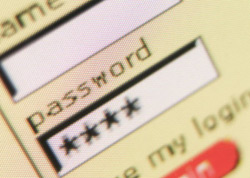
used with permission from Norton by Symantec
 Too many passwords,
so many devices € how can you keep them all straight?
Too many passwords,
so many devices € how can you keep them all straight?Password pain is spreading. Just look around and you€ll see evidence everywhere: Post-it notes on desks, cryptic scribbles in wallets and purses, password-reset emails, and more. Isn€t there a better way to remember the passwords we need to access the online sites we visit every day?
In today€s digitized world, the amount and complexity of passwords is on the rise. With social media, gaming, shopping, entertainment, and banking almost exclusively conducted online, it€s fast becoming a major headache to remember all the user names and passwords that keep us connected € especially for sites that aren€t frequented daily. Add in the fact that we€re also connecting with keyboard-less smartphones and tablets that have to be synched with our PCs, and that many accounts now require longer passwords with special characters for extra security, and it€s no wonder we can€t keep track.
Recent surveys* show how widespread the problem has become:
- 33 percent of users have more than ten passwords.
- 25 percent forget three or more passwords every month.
- 30 percent use a smartphone to access online accounts.
- Nearly 40% of users write down their passwords.
So how do you cope? The methods commonly used are difficult and often ineffective and risky. You can:
- Try to remember them. But with so many different passwords, it€s impossible.
- Write them down. Notes with passwords can fall into the wrong hands, exposing you to theft and fraud.
- File them. Making a digital file of your passwords and leaving it on your devices can be dangerous if someone gains access to your computer, smartphone, or tablet.
- Make it simple. Many people use the same password everywhere, often one that is easily guessed (e.g., 123456, a birthday, or a home address). But if hackers crack it once, they can use it to access all your sites.
- Let your browser do it. Most browsers can remember passwords. But if not managed correctly, the browser might automatically log you in and expose your accounts to anyone who uses your device, or make your saved passwords accessible to outsiders.
Business as usual is clearly not eliminating the pain. In fact, the traditional methods actually reinforce unsafe habits. In response, a number of password management products have been developed. More than just browser-based tools that simply save and auto-fill information, some of today€s password managers offer features that make it easy to call up passwords and access them securely and conveniently wherever and whenever needed € across all your devices.
The latest entrant € Norton€ Identity Safe € features cloud-based security, one-click login, and is very easy to use. And best of all, it€s from Norton € a worldwide leader in security € so you know you can trust it to keep your passwords out of the hands of anyone who might misuse them. Learn more about Identity Safe and download it for free here.
* Password Management and Authentication Research, June 2011, and Norton Omnibus US Survey, March 2012